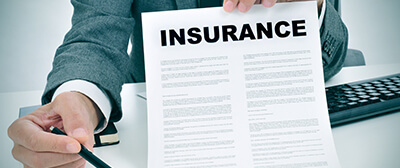Written By Callum Watkins, Digital Marketing Executive at 1st Choice Insurance
It doesn’t matter whether you’re a recent start-up with a great new idea that could take the world by storm, or you’re a seasoned entrepreneur ready to explore, insurance can be ‘complicated’. Whilst we all understand how essential insurance is, let’s face it, it’s time-consuming, seemingly expensive and unless you went to Oxford, you probably won’t understand the whole policy.
We work with businesses nationwide, many of whom are small businesses or even sole traders, so we have the experience needed to help small businesses make more informed decisions. In this blog, we will outline 3 tips that small businesses can use today to better understand their insurance needs, before approaching a broker.
Tip 1 – Calculate What Your Risks Are
In a nutshell, all insurance premiums are calculated by risk. The higher the risk of a claim, generally, the more expensive the insurance policy will be. Besides the likelihood of an event occurring, insurance must also consider
We recommend that you sit down with a pen and paper and consider all the possible accidents or events that could occur. These could result in someone suing you for damages, or you may wish to make a claim personally to recover losses. These are often unique to each business, for example, a freelance marketing executive has different risks to a cafe.
You need to step back, look at your business and make a list of all the risks that could occur where someone could be hurt, or your business could be affected in a way that reduces profitability. Some common risks most businesses will have to consider include:
1. Public Liability – should a customer be hurt on your premises
2. Employers Liability – should your staff be hurt or injured at work
3. Product Liability – protects you from claims where your product causes
4. Commercial Motor Insurance – covers vehicles that deliver goods, products or a service to customers for business purposes
5. Buildings – covers a range of damages from vandalism to fire, should they occur to your business premises
6. Building Contents – covers the contents of your business from damage, loss or theft.
7. Business Interruption – covers lost profits in the result your business is affected by a common peril e.g. fire, weather, floods etc.
Tip 2 – Understand The Value Of Your Risks
Once you have compiled a list of all your risks, you need to consider how likely these risks are to ever occur, and what effect it could have on your business. So, let’s say you run a café. Your risks could vary from staff being burnt in the kitchen, to a member of the public getting food poisoning, to a blocked water pipe that floods your dining area, leaving your business unable to operate.
Look at each risk and consider the likelihood of it ever occurring, and the cost it could incur for your business. This is where you really need to be honest and specific. The likelihood and cost would vary from café to café, such as the cost of the building,
Example 1: The likelihood of a customer getting food poisoning from your café could be relativity high, but the chance that they are made considerably ill and awarded a high pay-out could be very low.
Example 2: The likelihood of a burst water pipe flooding your business could be very slim. However, if it did happen, it could close your business for a week and cost you £1,000’s in lost revenue.
Keep looking at each of the risks you have identified and consider the ones most likely to occur and ‘must’ be covered. This will take a bit of time and it’s based mostly on
Tip 3 – Lets your risks calculate your insurance needs
Now that you have a built a better idea of the risks your business faces, and the threat each risk possesses, you can outline this to your broker. This ensures the policy you select provides enough cover to remove the risks from your business, and nothing else. This often saves you a lot of money, time and hassle. Always question your broker on the policy details if you are unclear, and don’t be afraid to outline the risks you
One tip we always recommend businesses of all sized is to strongly consider a commercial combined policy. It allows you to pick and choose several insurance products and combine them into a single policy, offering great protection and great value. For more information on our business insurance please feel free to contact 1st Choice Insurance.
Read the last blog from 1st Choice Insurance here








